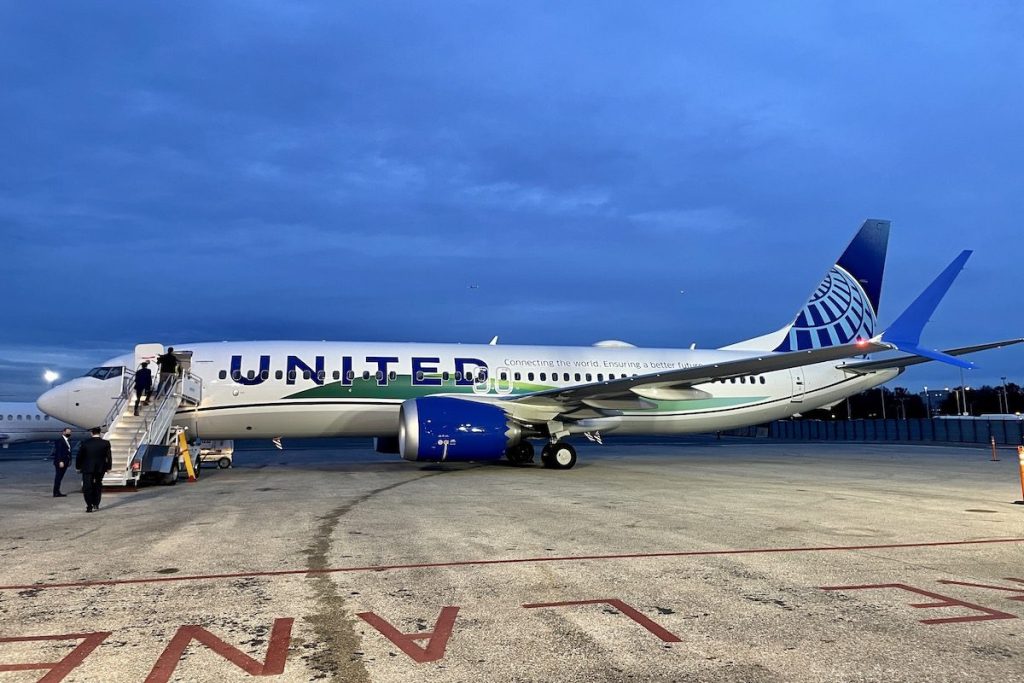The U.S. airline industry is concerned about what they perceive as unfair advantages enjoyed by Chinese carriers due to various factors such as access to Russian airspace and the support of the Chinese government. In a letter addressed to Transportation Secretary Pete Buttigieg and Secretary of State Antony Blinken, major U.S. airline groups urged for a pause in the expansion of passenger flights to China until U.S. workers and businesses are guaranteed equality of access in the marketplace. The letter emphasized the need to address the anti-competitive policies of the Chinese government that they believe put U.S. airlines at a disadvantage.
The post-pandemic growth of the U.S.-China airline market has been stunted due to restrictions imposed by both countries as geopolitical tensions between them continue to simmer. Prior to the pandemic, around 150 weekly flights operated between the U.S. and China. However, restrictions were put in place as tensions escalated, limiting flights between the two countries. While China has resumed pre-pandemic levels of flying to other destinations, such as Egypt and Saudi Arabia, progress with the U.S. has been slower. Despite recent increases in the weekly flight cap, concerns remain regarding the potential impact on U.S. workers and businesses if Chinese carriers are allowed to expand unchecked in the U.S. market.
One major issue for U.S. airlines is the lack of access to Russian airspace, while Chinese competitors benefit from being able to fly over it. This discrepancy enables Chinese carriers to offer lower prices for certain flights, resulting in a loss of market share for U.S. airlines. The U.S. airline industry estimates that the lack of access to Russian airspace has cost them around $2 billion in annual market share. Additionally, the need for U.S. carriers to change flight paths due to this limitation has led to more layovers and delays in launching new routes in the Asia-Pacific region. The U.S. government has been urged to place more restrictions on foreign carriers flying from the U.S. to certain routes and has considered banning Chinese airlines from flying over Russian airspace.
The relationship between Chinese airlines and the country’s government also presents a challenge for U.S. carriers operating in China. The letter from major U.S. airline groups highlighted the competitive disadvantage faced by U.S. airlines in China due to the support Chinese airlines receive from the government. The call to address these significant competitive issues and protect U.S. aviation workers, travelers, and airlines underscores the industry’s concerns about the impact of unfair advantages enjoyed by Chinese carriers. The U.S. airline industry continues to lobby the government for measures to level the playing field and ensure fair competition in the airline market.
Overall, the U.S. airline industry’s concerns about the expansion of passenger flights to China stem from perceived unfair advantages granted to Chinese carriers through access to Russian airspace, support from the Chinese government, and other competitive factors. The call for a pause in expanding passenger flights until issues of equality and fairness are addressed reflects the industry’s desire to protect U.S. workers and businesses from potential harm. With geopolitical tensions continuing to impact the U.S.-China airline market, U.S. airlines face challenges in competing with Chinese carriers, especially in areas such as access to airspace and government support. The industry’s plea for government intervention to address these issues highlights the importance of ensuring equitable competition in the global airline industry.















